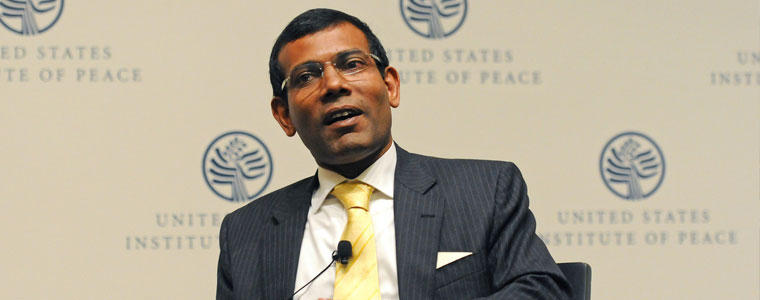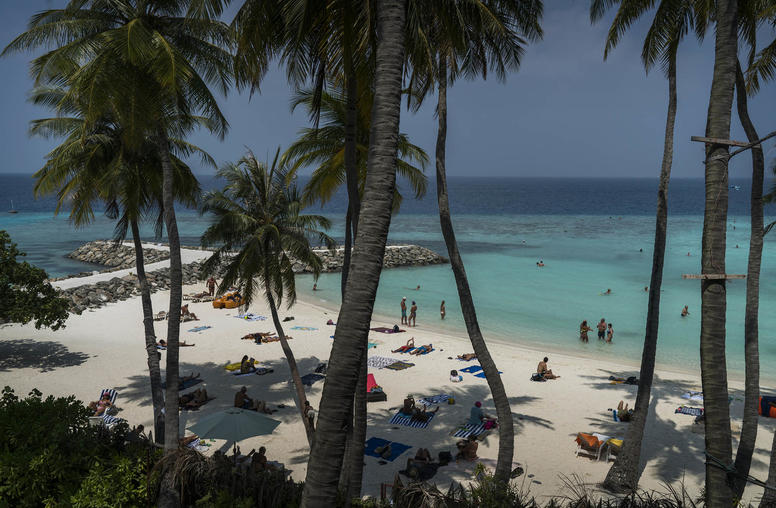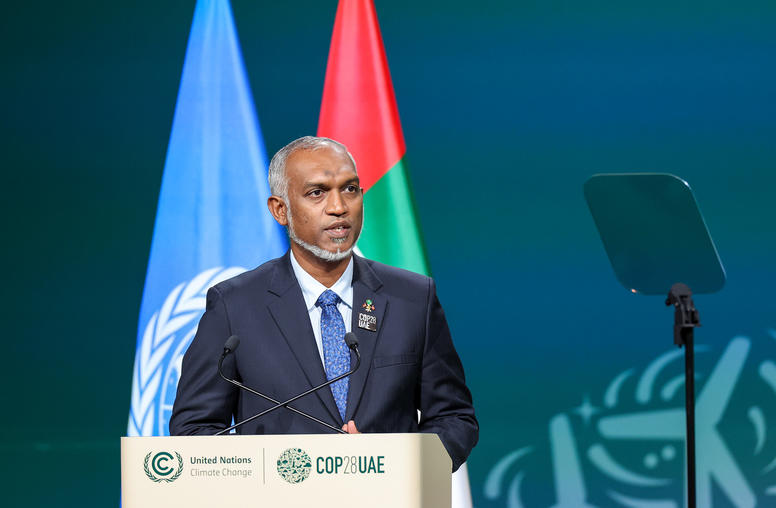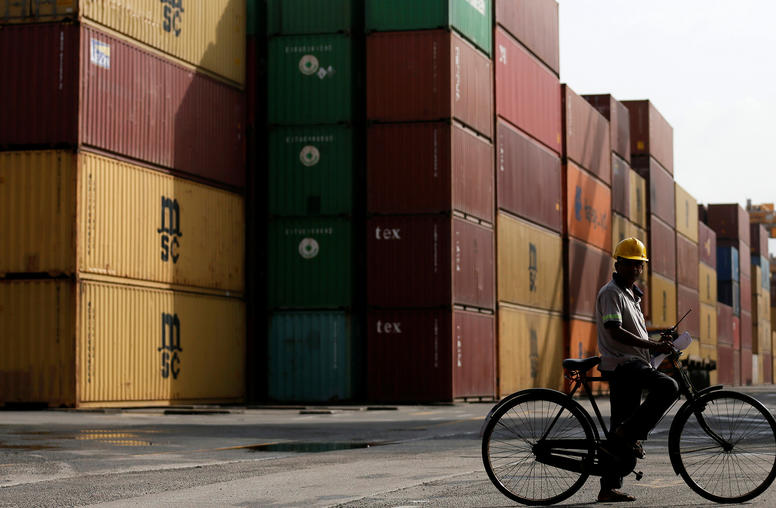Democracy in Question in the Maldives: President Mohamed Nasheed Speaks
Former President Mohamed Nasheed of the Republic of Maldives spoke at USIP on June 25.
Read the event analysis, Former President Mohamed Nasheed Speaks: Democracy in Question

Former President Mohamed Nasheed of the Republic of Maldives spoke at the U.S. Institute of Peace (USIP) on June 25. President Nasheed was the first democratically elected president of the Maldives, but was deposed four months ago by what has been described as an armed contingent. Before his election in 2008, Nasheed led the nonviolent democratic opposition against Maumoon Abdul Gayoom, who ruled the country for 30 years.
After his election, Nasheed quickly became known globally for his championing of action on climate change. His first year in office as the country’s first democratically elected president is chronicled in the documentary, “The Island President,” now in theaters and on iTunes. The unsettling developments in the Maldives come at a critical time of other major transitions in the Islamic world. Nasheed will discuss these recent events and his perspective on political transitions and nonviolent resistance in the Middle East and North Africa.
The June 25 event featured an engaging conversation with Nasheed on nonviolent action, democracy and climate change, and to watch an excerpt of “The Island President.” Co-hosted by the International Center on Nonviolent Conflict, Dr. Peter Ackerman led a discussion with the former president.
Speakers
-
President Mohamed Nasheed, (Discussion)
Former President of the Maldives -
Richard H. Solomon, (Introductory Remarks)
President, USIP -
Peter Ackerman, (Discussion)
Founding chair, International Center on Nonviolent Conflict
Explore Further
USIP's Work on Climate Change
- Climate Change as a Conflict Multiplier
by Amanda Mayoral - Climate Change Adaptation and Conflict in Nigeria
by Aaron Sayne - Climate Change and Africa: Valuing the Voices of the Most Vulnerable
by Melvin Foote - Hot and Cold Resource Wars: One More Reason to Care about Climate Change
by Amanda Mayoral and Michelle Swearingen - Environmental Sustainability and Peace in a Changing World
USIP Event | Listen to the event audio recording
USIP's Work on Non-Violent Resolution
- Enhancing Traditional Local Conflict Resolution Techniques in Afghanistan
By Nina Sughrue - Non-Violent Struggle: 50 Crucial Points
- Non-Violent Civic Action
- Strategic Nonviolent Conflict: Lessons from the Past, Ideas for the Future
Special Report by John T. Crist, Harriet Hentges, Daniel Serwer - Civil Resistance and the Dynamics of Nonviolent Conflict
USIP Academy Course - Whither the Bulldozer?: Nonviolent Revolution and the Transition to Democracy in Serbia
Special Report by Albert Cevallos


